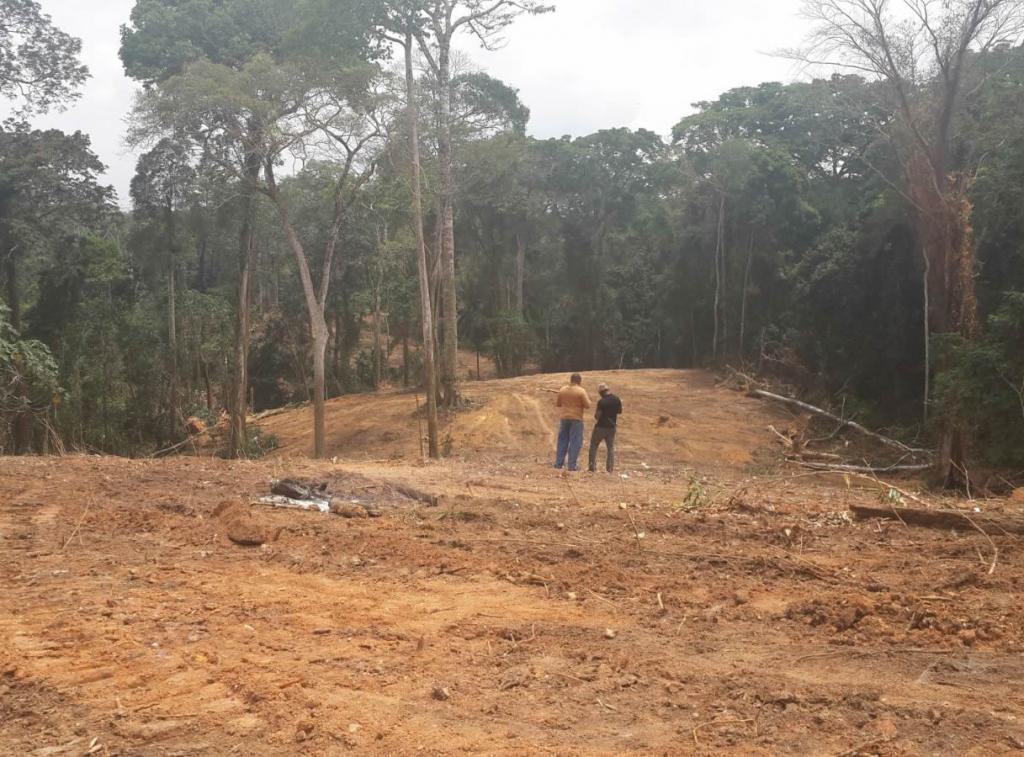
By Nnimmo Bassey
The controversy surrounding the 260 km Superhighway proposed by the Cross River State government (CRSG) of Nigeria will not go away.
Notably, the bulldozing of forests, farmlands and sundry properties commenced last year without an approved Environmental Impact Assessment (EIA). Curiously, the government issued an edict dispossessing individuals and communities of lands lying within an incredible 10 km width on either side of the proposed superhighway.
The area so proposed for this land grab covers 5200 square kilometres or an astonishing 25 percent of the landmass of Cross River State. The best argument presented by defenders of the proposal is that the massive land uptake of 10 km on either side of the superhighway is essential for the protection of the superhighway.
If that argument is interpreted to mean that the government plans to keep the people away from the superhighway so as to protect it, we would like to know for whom the highway is meant.
To many observers, the fact that the highway starts from a proposed deep seaport and ends in a small Sahellian town suggests that the main intent may be the harvesting of timber from community and National Forests for export.
The promise by the government that it would replace each mowed tree with two or up to five saplings and that no one should worry about any deforestation ensuing from the bulldozing of existing forests is a brilliant narrative that is anchored on fiction.
First, what species of trees would be planted? Secondly, what replaces the ecosystems that would be destroyed including the threatened endemic species in the five protected areas to be impacted by the project?
The five protected areas to be directly damaged by the project include Cross River National Park, Ukpon River Forest Reserve and the Cross River South Forest Reserve, the Afi Mountain Wildlife Sanctuary and the Afi River Forest Reserve.
It is possible that the CRSG is not aware of what would be lost if the pristine forests are destroyed. We say so because the EIA presented by the State government to the Federal Ministry of Environment has a curious list of animals that are not found in the region in question, with some not even being found in Nigeria or Africa.
This anomaly suggests that the EIA is a copy-and-paste document that is not site-specific and should be rejected outright. In particular, the EIA lists small Indian and Chinese alligators among the species found in the Cross River forests.
Other species that may have been created by the writers of the EIA include, black and white colobus monkey, Dent’s monkey, blue monkey and the roloway monkey. This is mind-boggling by any measure. The EIA lists 17 bird species whereas there are up to 400 species in the threatened forests. The consultants also repeatedly refer to the Cross River National Park as the Oban Group of Forests even though a name change took place in 1991.
Communities threatened by the project have repeatedly said that there was no free, prior, and informed consent of the people to this project. They insist that they need access roads and are not averse to such access being provided. What they cannot fathom is why a State that prides itself as being environment friendly and climate conscious would plan to decimate the last remaining pristine rainforests in Nigeria.
The latest protest has come from women and girls of Etara, Eyeyeng, Edondon, Okokori, Old Ekuri and New Ekuri, Iko Esai and Owai communities in Etung, Obubra and Akamkpa Local Government Areas in the state, under the aegis of the Wanel-Aedon Development Association (WANELDON).
In a protest letter dated 30th January 2017 tagged “Our Opposition to the Revocation of our Lands for a Superhighway” and sent by WALNELDON to President Buhari, the women proclaimed their “total opposition against Governor Ben Ayade’s revocation of swathe of all our lands for a superhighway.”
They claim among other things, that they were excluded from all decision-making processes related to the project and that the project as an affront to their social and economic rights. The women also insist that the project would negate key Sustainability Development Goals (SDG) 1 to 5: No Poverty; No Hunger; Good Health and Well-being; Quality Education and Gender Equality.
The women note that they are ethnic minorities that are being made to suffer multiple discrimination and deprivation including by being rendered internally displaced persons (IDPs) and subjected to heightened vulnerability in other ways. For this and many other reasons, the request President Buhari to governor to “de-revoke” [ownership] of all their “lands including settlements, farmlands and forests.”
The women also demand that the superhighway should be rerouted and that the wishy-washy EIA being presented to the Federal Ministry of Environment should not be approved. We could not agree more. If the 10km land grab has been reversed, as claimed by the State’s commissioner for Climate Change at the 18th Bassey Andah Memorial Lecture held in Calabar recently, the CSRG should publish such a “de-revoking order” for avoidance of doubt.










